|
User
Reviews 85
Approval 97%
Soundoffs 189
News Articles 14
Band Edits + Tags 6,645
Album Edits 12,097
Album Ratings 15726
Objectivity 73%
Last Active 07-27-22 7:57 am
Joined 12-20-10
Review Comments 854
| Best of Japanese Bands: 70's version
The best bands Japan had to offer in the 70's. | | 1 |  | Yellow Magic Orchestra
Solid State Survivor
Along with Kraftwerk, Yellow Magic Orchestra are considered to be among the most groundbreaking bands in electronic music history. The group pioneered electropop, new wave and even hip hop, recording their first hip hop crossover track at around the same time as "Rapture" by Blondie. They were also the only Japanese artists to have been on the iconic American dance program Soul Train. | | 2 |  | Happy End
Kazemachi Roman
The earlier project of future Yellow Magic Orchestra member Haruomi Hosono, Happy End ended up becoming just as iconic in the Japanese music universe as YMO. Despite having a run of only four years, plus a brief revival in 1985, Happy End's folk sound inspired an entire generation and is still held in the highest regard among Japanese music fans and critics. | | 3 |  | Kaguyahime
Sankai Date no Uta
Kaguyahime are part of the Mount Rushmore of Japanese folk, along with Happy End, Yosui Inoue and Off Course. Initially having a sluggish start, the group emerged victorious by 1973, with their biggest success occurring with the release of their 1974 album "Sankai Date no Uta", which topped the Oricon charts and was not only the fourth best selling album of 1974, but was also the 27th best selling album of 1975. While Kaguyahime have been "officially" disbanded since 1980, the group have had countless reunion shows since 1985. | | 4 | 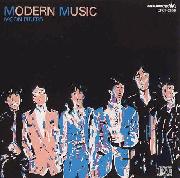 | Moonriders
Modern Music
With a career that lasted nearly 40 years straight, Moonriders are one of the most prolific and game-changing groups to emerge from the 1970's Japanese rock circuit. The group would go on to experiment with numerous genres, with some including new wave, space rock, pop and art rock. The legacy and signature sound of Moonriders can be compared to the likes of Talking Heads. | | 5 |  | Sadistic Mika Band
Kurofune
Another iconic group with ties to YMO, Sadistic Mika Band is one of the earliest female-fronted rock bands to take Japan by storm. Along with their unique sound that blends elements of plain rock n roll, jazz-fusion and progressive-hard rock, Sadistic Mika Band remains highly acclaimed today, with one of their more impressive accolades being their "Kurofune" album ranking at number 9 in a list of best Japanese albums of all time by Rolling Stone Japan. | | 6 | 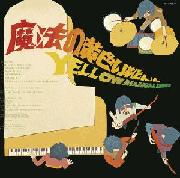 | Tulip
Mahou no Kiiro Ikutsu
Similarly to Moonriders, Tulip were definitely pioneers in meshing different musical styles, and making each album quite different from another in terms of style. Mainly a psychedelic-pop rock band, the group never really achieved mainstream success like the majority of other bands on here, although their frequent experimentations with numerous styles and genres was absolutely groundbreaking and ahead of its time. | | 7 | 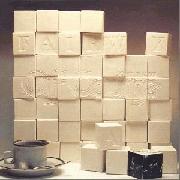 | Off Course
Fairway
Considered to be one of the most influential Japanese rock groups of all time, Off Course didn't exactly have it easy upon becoming a major band in 1970. It took the group three years to release an album, which failed to chart. Upon the release of four more full albums and a dozen singles, the group were starting to finally cross over commercially by 1977. In 1978, Off Course's album, "Fairway", was their first to break the Oricon top 10 at number 8, and was the 34th best selling album of the year. Off Course would then catapult into superstardom and were among the best selling groups of the 1980's in Japan, with each album topping the top 2 charts throughout the decade. Their folky, poppy style would go on to inspire a flood of neo-folk bands in the late 1980's and 1990's, which would later be spearheaded in mainstream popularity with the success of groups like Yuzu, Kiroro, 19 and Kobukuro. | | 8 | 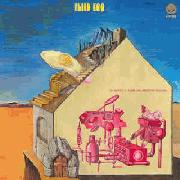 | Flied Egg
Dr. Siegel's Fried Egg Shooting Machine
Although having very limited success during their three-year run, it is the fact that it consists almost entirely of future Japanese music icons is what makes Flied Egg so significant. The group had connections to groups like Jacks, as well as one of the most beloved frontmen in Japanese rock music (George Yanagi) and one of the most respected guitarists as well (Masayoshi Takanaka). | | 9 |  | Lazy (JPN)
This is the Lazy
Another group that had far from impressive sales, Lazy's sound is still quite significant and groundbreaking for its time. Lazy are one of, if not the earliest hard rock band in Japan to have mainstream attention, predating other Oricon-breaking hard rock groups like Loudness, X Japan and Seikima-II by several years. | | 10 | 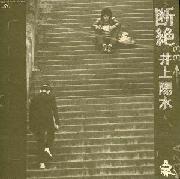 | Yosui Inoue
Danzetsu
The one-man-band Yosui Inoue is hands-down one of the most influential songwriters in modern Japanese music history. Releasing his first album in 1972, "Danzetsu", at the young age of 24, his emotional and thoughtful lyrics resonated with the Japanese youth of the time, and his revolutionary folk style went on to influence countless major musicians, some of which include Kazutoshi Sakurai, Tamio Okuda and Miyuki Nakajima. | | 11 |  | Kaze
Toki wa Nagarete...
Kaze was a short lived spin-off of Kaguyahime, and it consisted of vocalist Kazuhisa Okubo and guitarist Shozo Ise. Kaze would end up being as successful as Kaguyahime, with each of their five original albums breaking the Oricon top 5, with the lowest ranking being their 1976 album "Windless Blue", which still reached number 3, and the duo ended up being one of the best selling artists of the decade. | | 12 | 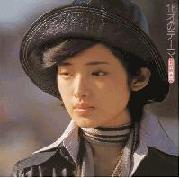 | Momoe Yamaguchi
16-sai no Teema
Although she's not a band, the legacy of Momoe Yamaguchi is too important not to mention. With a career that lasted just seven years, Momoe's cute-yet-mature image and sound sparked an explosion that officially launched the Japanese idol pop industry. Retiring from the music business at the young age of 21 to start a family, she sold over 10 million records during her 70's run, an astonishing amount considering the decade. | | 13 |  | Miyuki Nakajima
A-Ri-Ga-To-U
Widely considered to be the most influential female songwriter in modern Japanese music history, Miyuki Nakajima has had a vastly successful career that spans over 4 decades with few breaks in between. Her in-depth, rich and personal lyrics helped break down various social stigma borders in 70's Japanese music, and she has been called an influence by Yuki, Miwa Yoshida and Yuri Nakamura from Garnet Crow. | |
Papa Universe
02.25.18 | yes, please | Papa Universe
02.25.18 | finally got featured! | brainmelter
02.25.18 | now this is a dope list | discovolante
02.26.18 | Whoa, that's definitely a first for me. Thanks everybody! And most definitely, Darius. That's gonna be the final chapter for this, then I'm gonna do some underrated bands by decade. | zoso33
02.26.18 | okay yes, this is what sputnik needs more of
epic list man | MrSirLordGentleman
02.26.18 | Needs Yonin Bayashi and Flower Travelin Band | discovolante
02.27.18 | Ahhh FTB, good call. I almost put them in, but the edge ended up going to Flied Egg. | Friday13th
02.27.18 | Needs Yonin Bayashi and Flower Travelin Band [2]
That said, I'm only familiar with #1. Some of these look very interesting. | samwise2000
12.29.19 | Still love listening to Momoe Yamaguchi, 'Dramatic' is an absolute classic in my eyes |
|
